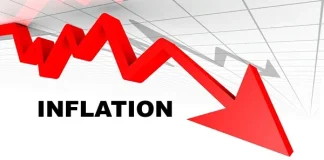🌿 Ruzu Non-Alcoholic Herbal Bitters
Ruzu Non-Alcoholic Herbal Bitters is a natural health supplement specially formulated to:
- ✅ Promote general wellness
- ✅ Detoxify the body
- ✅ Support the treatment of various ailments
Made from a powerful blend of 100% organic and medicinal herbs, Ruzu is completely alcohol-free, making it ideal for:
- 👪 All age groups
- 🌱 Health-conscious individuals
- 🌿 Anyone seeking non-alcoholic herbal remedies
Whether you're looking to boost your vitality, cleanse your system, or support healing the natural way, Ruzu Bitters offers a trusted herbal solution.
Abdul Samad Rabiu, the Chairman of BUA Foods Plc, has issued a scathing accusation against competitors in the food industry, alleging that they deliberately create scarcity to drive up prices.
In a statement released on Thursday, Rabiu revealed that his company had faced significant challenges in maintaining lower prices for its products due to the actions of other producers.
Rabiu highlighted the example of flour prices, which had reached exorbitant levels, reaching as high as N70,000 per bag. Despite BUA Foods maintaining a significantly lower price of N50,000 for an extended period, other companies allegedly resorted to a deliberate strategy of halting production to create scarcity, leading to further price increases.
“When we were at N50,000, the distributors added N20,000 and were selling at N70,000 per bag. At one point, customers were making almost N20 million per truck of 75 tonnes of flour. Yes, it happened,” Rabiu stated.
Read Also: Revenue generation threatened as oil, gas companies owe Nigerian govt $6bn, N66bn, says NEITI
The BUA Foods CEO emphasized that the company’s commitment to lower prices had been hindered by the unscrupulous tactics of competitors who sought to profit from scarcity. He criticized the practice of artificially limiting supply to drive up prices, which he described as a significant problem that negatively impacts consumers and the overall economy.
“BUA products are the cheapest in the market. And because we have other companies producing similar products, it is very difficult to price them low. For instance, a few months ago, the price of flour went as high as N70,000 per bag. We retained ours at N50,000 for quite some time to try and force other companies to also come down. But when they saw it was going to happen, they deliberately stopped production, and the prices kept going up.
“That was why they suddenly stopped production to create scarcity. With that scarcity, the price kept going up. So that is part of the problem. When we saw that, we knew it did not make sense for us to continue selling at N50,000 when the market was at N70,000. Our production is substantial, but there are two other companies that are bigger than us.
“However, we believe that by next year, we are going to be bigger than them,” he said.
Rabiu expressed frustration with the industry’s prevailing dynamics, where competitors prioritize short-term profits over the long-term interests of consumers. He argued that such practices not only harm consumers but also undermine the reputation of the entire food industry.
The BUA Foods CEO expressed confidence in his company’s ability to overcome these challenges. He stated that BUA Foods is rapidly expanding its operations and investing in increased production capacity. Rabiu believes that by significantly increasing its market share, BUA Foods will be better positioned to exert greater influence over pricing and mitigate the impact of scarcity tactics employed by other producers.
Furthermore, Rabiu emphasized the importance of transparency and accountability within the food industry. He called for increased regulation and oversight to prevent anti-competitive practices and ensure fair competition. By promoting a level playing field, Rabiu argued that the industry can better serve the needs of consumers and contribute to the overall economic development of the country.
The statement from Rabiu sheds light on the competitive dynamics within the food industry in Nigeria. It raises concerns about the potential for anti-competitive practices that can harm consumers and drive up prices.
The post BUA CEO, Rabiu, accuses food producers of creating artificial scarcity to hike prices appeared first on Latest Nigeria News | Top Stories from Naomisophyblog.
















